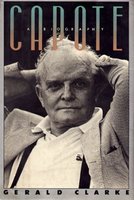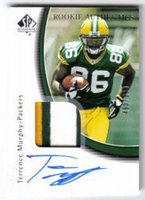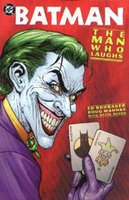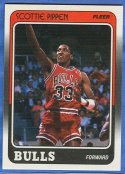 I purchased a first edition hardcover copy of Capote by Gerald Clarke on abe.com a while back. I’ve been reading it for the last few days. It’s a great book, but there’s something that’s been bothering me since I received it in the mail. No, it has nothing to do with the writing. Unfortunately, it has to do with the book’s condition. I’ve been trying to accept it and just consider it a reading copy, but that’s just not working and I need to vent. (I know, I know. This isn’t a collectible book, anyway, so why cry? But to me, every book is collectible. Besides, being “not collectible” is no excuse to own a battered book.)
I purchased a first edition hardcover copy of Capote by Gerald Clarke on abe.com a while back. I’ve been reading it for the last few days. It’s a great book, but there’s something that’s been bothering me since I received it in the mail. No, it has nothing to do with the writing. Unfortunately, it has to do with the book’s condition. I’ve been trying to accept it and just consider it a reading copy, but that’s just not working and I need to vent. (I know, I know. This isn’t a collectible book, anyway, so why cry? But to me, every book is collectible. Besides, being “not collectible” is no excuse to own a battered book.)I did my original search on abe and came up with several prospects. From those, I chose three booksellers to email. These three had something in common: they all had detailed descriptions on their book’s condition and they were all selling it for under $25.
Here’s the description from the bookseller I ended up doing business with:
Fine/Near Fine. First Edition. Based on hundreds of hours of interviews the author spent w/Capote and those who knew him, this is a wonderful biography of a complex man. Interspersed w/B&W photos of Capote with other stars of his era. Unprice-clipped DJ has minor bumping to top of spine. No writing, marking, etc. on this 1st edition HC.
In my email, I politely asked for more information on their copy of the book. I often claim that the book is to be a gift for a book collector, but this time I played it straight. Here’s my email inquiry:
Hello,
I'm very interested in this book. Can you tell me a bit more about the condition? I just want to make sure that there is no remainder mark, that the price isn't crossed out or cut, and that the bumping you mention on the DJ isn't too bad. So any additional information would be greatly appreciated.
Also, can you please verify that this is a first edition, first print?
Thanks,
James
One of the booksellers never got back to me. Another had recently sold his copy. The third wrote me back with a fairly thorough response, one that was detailed enough to have me send a follow-up. Here’s her initial email:
Hi, James.
No, there isn't any remainder mark, no previous owner's writing and the $22.95 price is on the DJ, not crossed out or cut. The bumping to the top of the spine I should have described it as more crinkled than bumped, as it doesn't affect the book at all. From the middle of 1973, Simon and Schuster began indicating a first edition with a number line on the copyright page, with the number 1 being at the beginning of the line, which this has. This is a first edition, first printing. I hope this helps.
Pretty nice, huh? I particularly liked her knowledge of Simon and Schuster’s copyright page. This showed me she knew her stuff. And if she had that knowledge, I figured she was treating me fair with her description of the book. Still, I had to ask a couple more questions:
Thanks. Last questions: Is the spine tight? And are the pages white and crisp? If so, I'd like to have you hold this book for a day or two so I can make payment (which would beg the next question: what method do you prefer?).
Her response had me salivating:
Hi, James. Spine is tight, and the pages are white and sharp. If you want, you can send payment directly to me, and I'll cover the S&H. I apologize for the delay in answering you. We had a nasty storm yesterday morning, losing power. Electric company just this a.m. got it going again. Let me know what you decide.
Are you kidding? Of course I was going to take the book. With a tight spine, sharp white pages, and free shipping, even I could live with a little rubbing on the top of the dust jacket. What a deal. How could I go wrong?
Oh, let me count the ways.
Actually, what I got would please pretty much every single book reader in the nation, and 80 percent of the book collectors wouldn’t be too critical either. But for me, it was enough to make my shoulders slump, my lips curl, and my head shake in disappointment.
First off, the BroDart application was less than perfect. I’ve seen worse, but it was bubbled and sloppy. Then, upon inspection of the dust jacket, it turned out the “rubbing” or “wrinkling” was a little worse than I had hoped. Not only was it on the top of the spine, it was also along the bottom and top of both the back and front covers. Hell, it was somehow wrinkled in a spot smack dab in the middle of the spine.
Of course, there were also enough dings and scratches and creases on the dust jacket to force you to use the fingers on both hands. Maybe that’s just what you have to accept with a book published 20 years ago.
Even all of that I could live with. Throw on a new BroDart and it’ll be shiny and new (at least at first glance). No, what really got me frustrated were the pages. No, they’re not brown or cream, but the pages certainly aren’t white. More off-white with a hint of yellow. And there’s this brown smudge on the bottom corner of the pages.
To add insult to minor injury, there are three spots where the pages are bent and dinged. It’s apparent that someone’s fingers or other object caught the edge of a few pages and bent/tore them a little. These blemishes stand out like a thin person at a Weight Watchers class.
So much for white, sharp pages.
Oh, but how was the spine? Not too bad, actually. It certainly didn’t have that virginal cracking sound we all love to hear when opening a book for the first time, but it’s not floppy and loose either.
All in all, this experience hasn’t been terrible, but neither has it been up to my standards. The thing that sucks most is that my confidence in abe booksellers took another blow; the third time in as many tries so far this year. That’s not a good track record. Looks like I’ll have to ramp up my efforts when it comes to finding the right copy. At the very least, I’ll have to improve the wording of my emails so it seems imperative that I get a Fine/Fine copy. At worst, I’ll need to start perusing the more costly items and hope that those booksellers are a little more strict when it comes to their grading measures.



